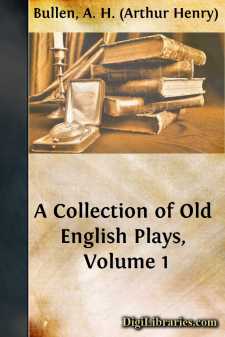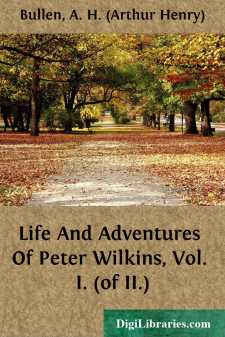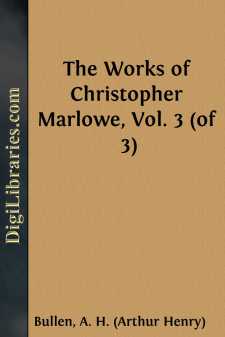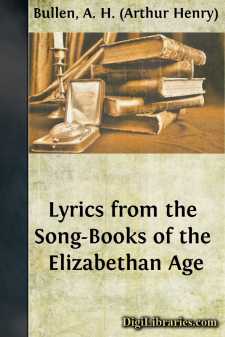Categories
- Antiques & Collectibles 13
- Architecture 36
- Art 48
- Bibles 22
- Biography & Autobiography 813
- Body, Mind & Spirit 142
- Business & Economics 28
- Children's Books 17
- Children's Fiction 14
- Computers 4
- Cooking 94
- Crafts & Hobbies 4
- Drama 346
- Education 46
- Family & Relationships 57
- Fiction 11829
- Games 19
- Gardening 17
- Health & Fitness 34
- History 1377
- House & Home 1
- Humor 147
- Juvenile Fiction 1873
- Juvenile Nonfiction 202
- Language Arts & Disciplines 88
- Law 16
- Literary Collections 686
- Literary Criticism 179
- Mathematics 13
- Medical 41
- Music 40
- Nature 179
- Non-Classifiable 1768
- Performing Arts 7
- Periodicals 1453
- Philosophy 64
- Photography 2
- Poetry 896
- Political Science 203
- Psychology 42
- Reference 154
- Religion 513
- Science 126
- Self-Help 84
- Social Science 81
- Sports & Recreation 34
- Study Aids 3
- Technology & Engineering 59
- Transportation 23
- Travel 463
- True Crime 29
A Collection of Old English Plays, Volume 3
Description:
Excerpt
INTRODUCTION TO SIR GYLES GOOSECAPPE.
This clever, though somewhat tedious, comedy was published anonymously in 1606. There is no known dramatic writer of that date to whom it could be assigned with any great degree of probability. The comic portion shows clearly the influence of Ben Jonson, and there is much to remind one of Lyly's court-comedies. In the serious scenes the philosophising and moralising, at one time expressed in language of inarticulate obscurity and at another attaining clear and dignified utterance, suggest a study of Chapman. The unknown writer might have taken as his motto a passage in the dedication of Ovid's Banquet of Sense:— "Obscurity in affection of words and indigested conceits is pedantical and childish; but where it shroudeth itself in the heart of his subject, uttered with fitness of figure and expressive epithets, with that darkness will I still labour to be shrouded." Chapman's Gentleman Usher was published in the same year as Sir Gyles Goosecappe; and I venture to think that in a passage of Act III., Scene II., our author had in his mind the exquisite scene between the wounded Strozza and his wife Cynanche. In Strozza's discourse on the joys of marriage occur these lines:—
"If he lament she melts herselfe in teares;
If he be glad she triumphs; if he stirre
She moon's his way: in all things his sweete Ape."
The charming fitness of the expression "sweet ape" would impress any capable reader. I cannot think that by mere accident the anonymous writer lighted on the same words:—
"Doe women bring no helpe of soule to men?
Why, friend, they either are mens soules themselves
Or the most witty imitatrixes of them,
Or prettiest sweet apes of humane soules."
From a reference to Queen Elizabeth in Act I., Scene I., it is clear that Sir Gyles Goosecappe was written not later than 1603. The lines I have quoted may have been added later; or our author may have seen the Gentleman Usher in manuscript.
Chapman's influence is again (me judice) apparent in the eloquent but somewhat strained language of such a passage as the following:—
"Alas, my noble Lord, he is not rich,
Nor titles hath, nor in his tender cheekes
The standing lake of Impudence corrupts;
Hath nought in all the world, nor nought wood have
To grace him in the prostituted light.
But if a man wood consort with a soule
Where all mans sea of gall and bitternes
Is quite evaporate with her holy flames,
And in whose powers a Dove-like innocence
Fosters her own deserts, and life and death
Runnes hand in hand before them, all the skies
Cleare and transparent to her piercing eyes.
Then wood my friend be something, but till then
A cipher, nothing, or the worst of men."
Sir Gyles Goosecappe is the work of one who had chosen the "fallentis semita vitae"; who was more at home in Academic cloisters than in the crowded highways of the world. None of the characters bears any impression of having been drawn from actual life....







